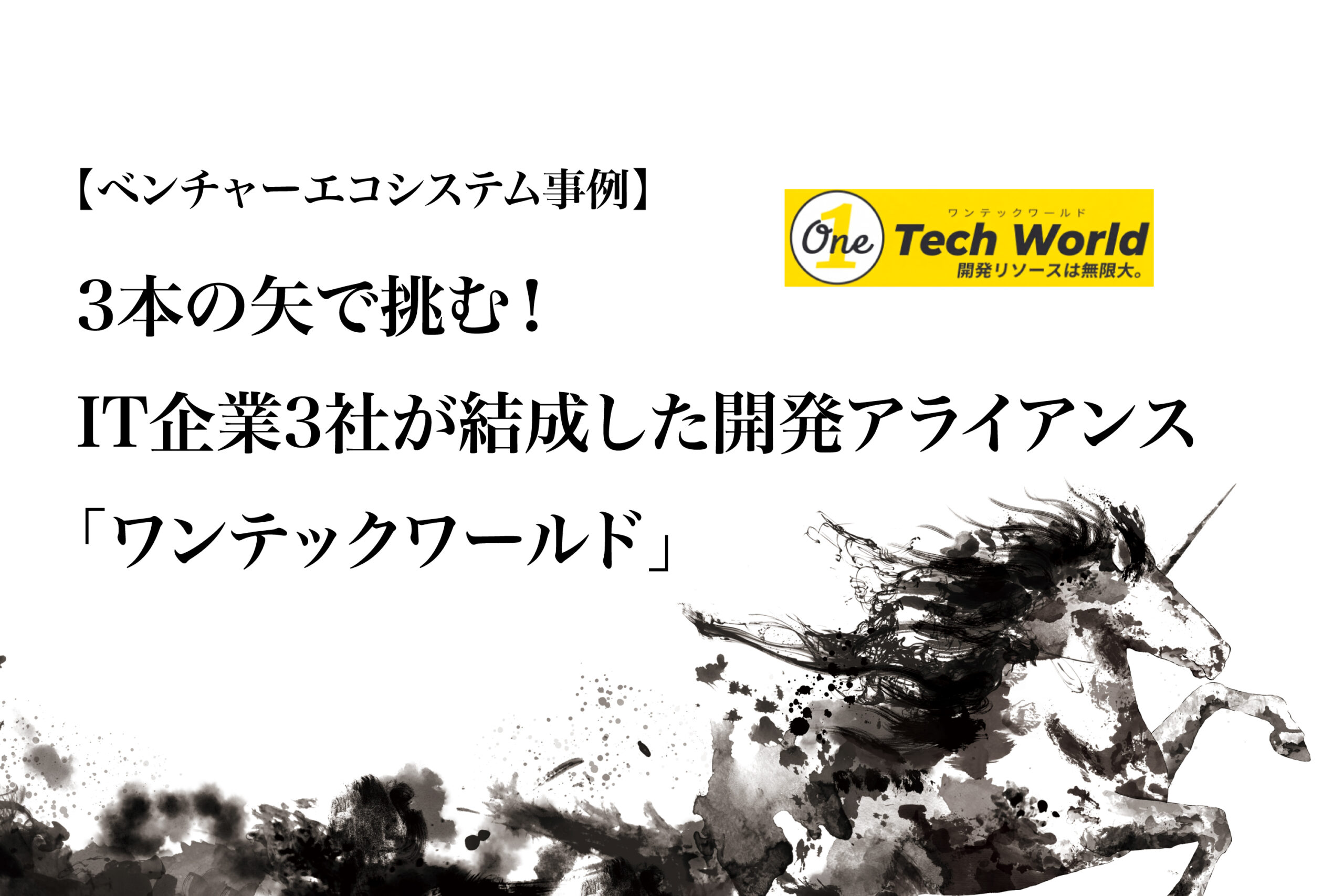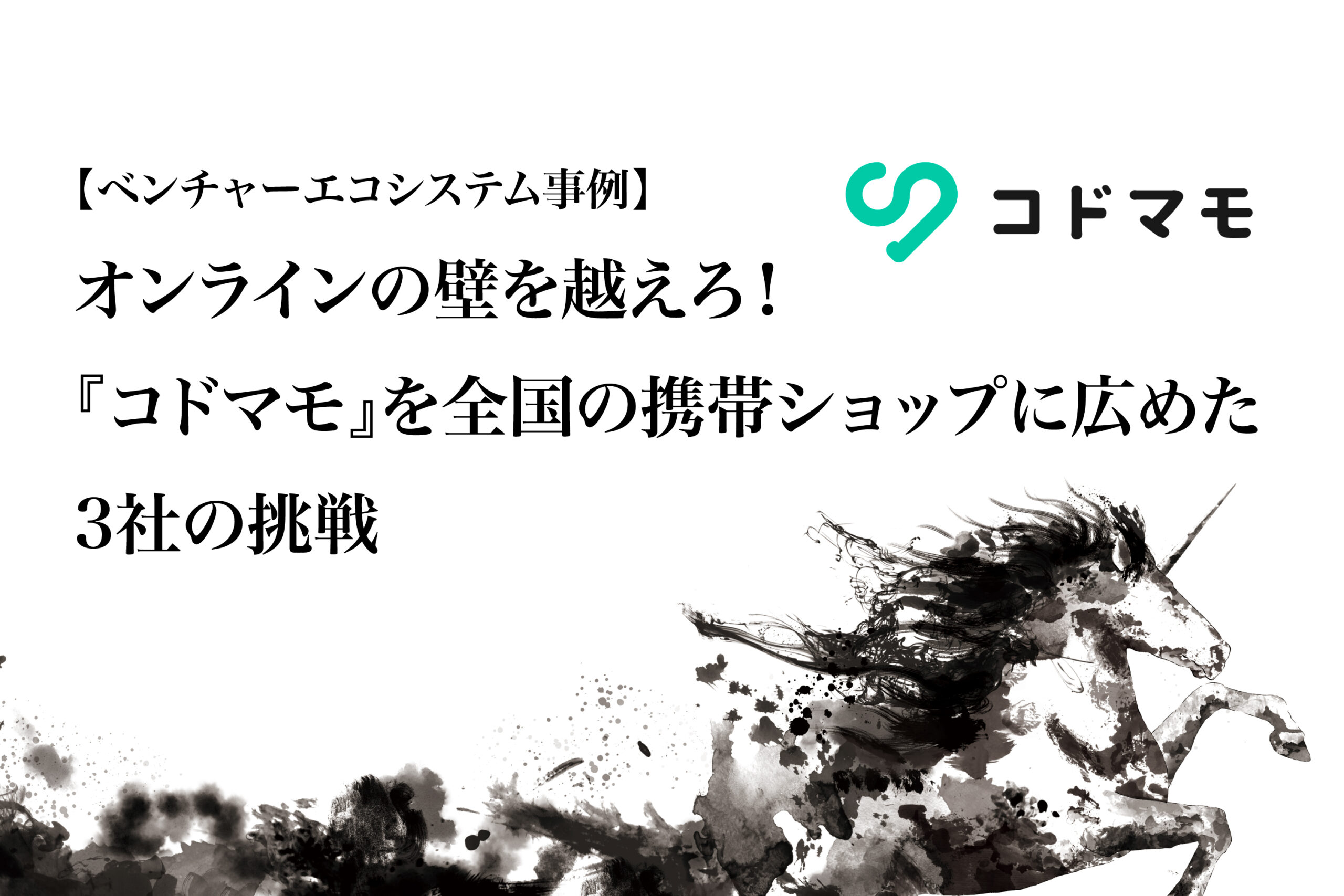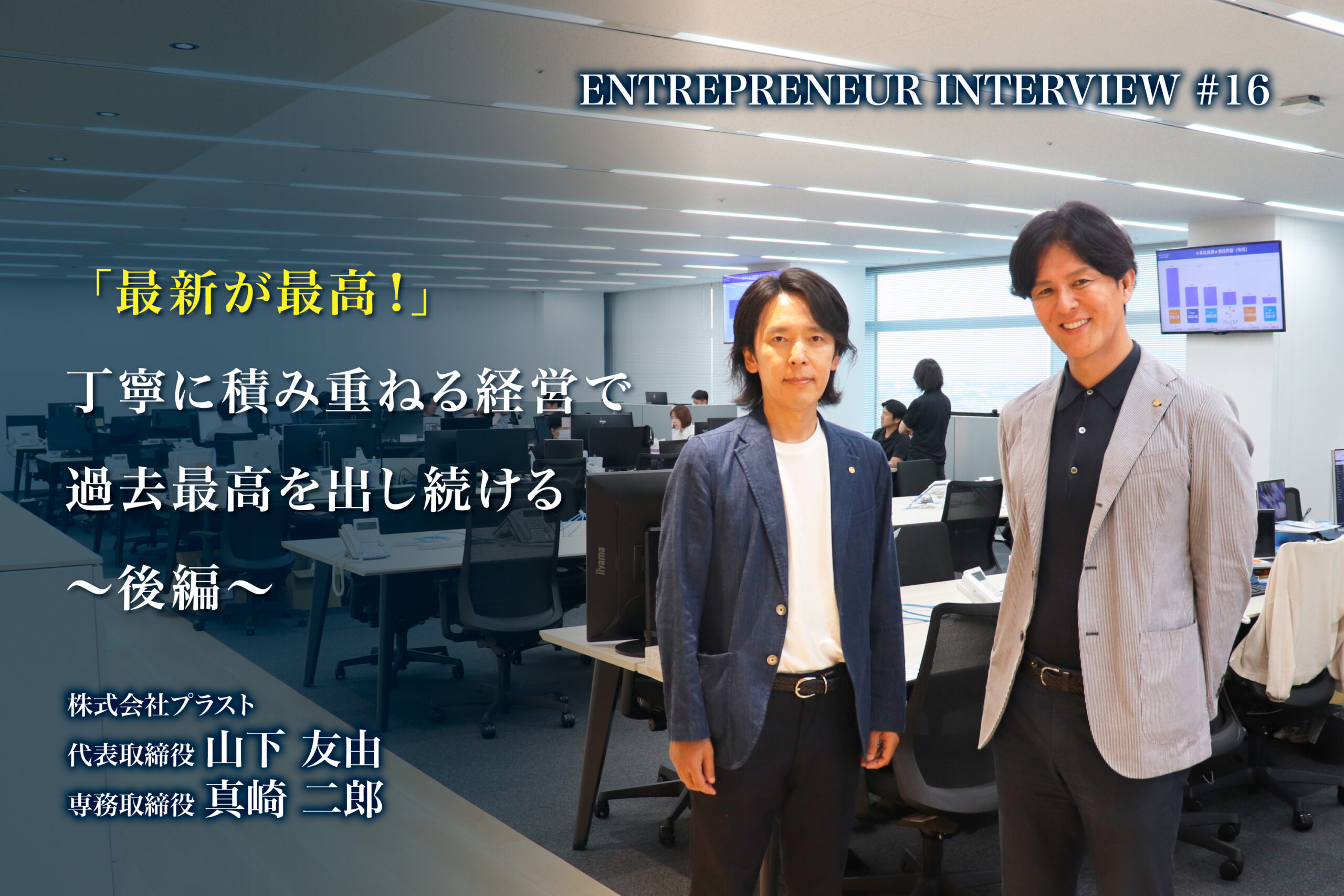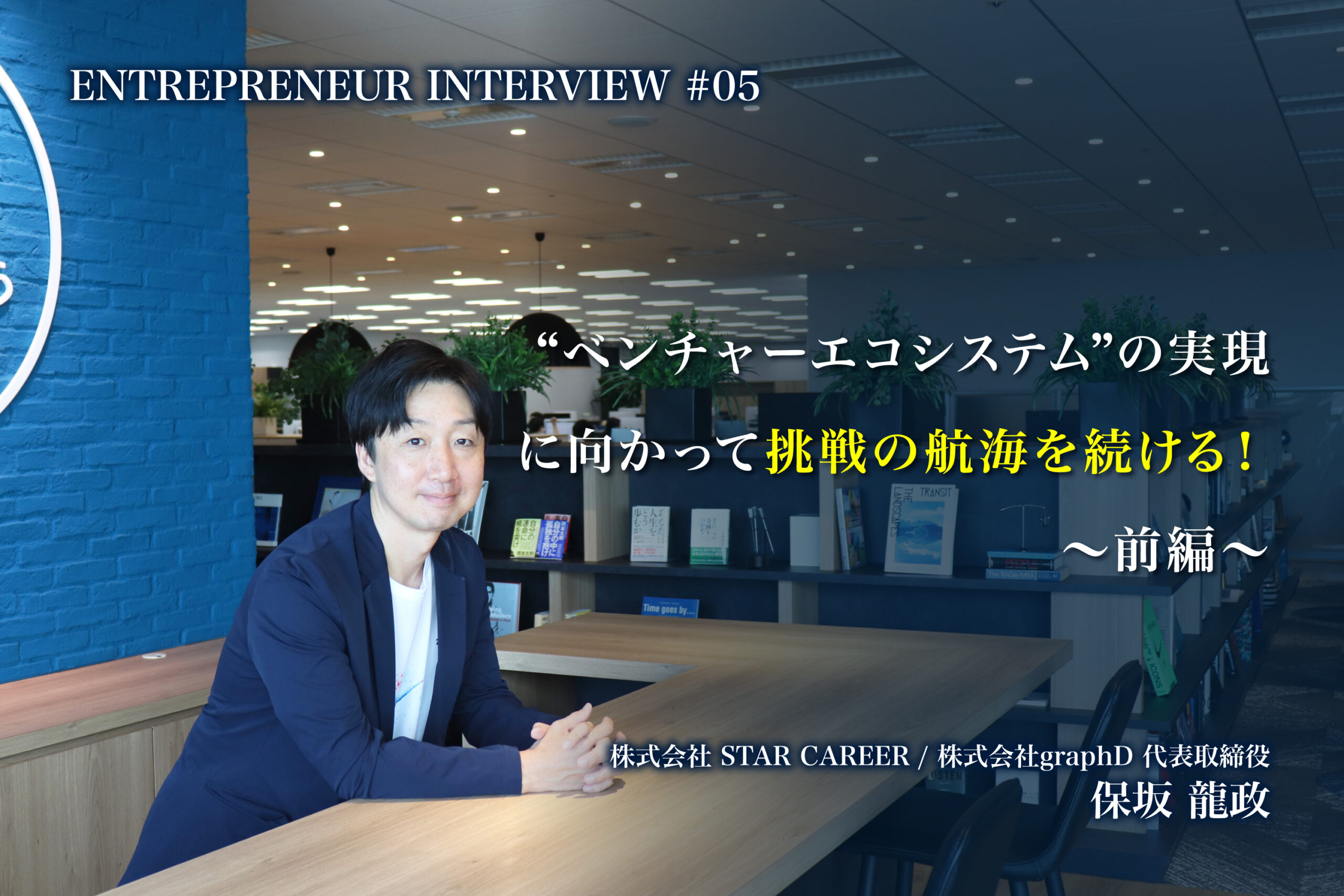
Interview with Tatsumasa Hosaka: a Daring Voyage Toward Realizing a “Venture Ecosystem”
At D-POPS GROUP, we have 23 group companies as partners (at the time of publication).
On this occasion, D-POPS GROUP Advisor Genta Sugihara interviewed President Tatsumasa Hosaka, who founded STAR CAREER CO., LTD in 2016.
◆Background of STAR CAREER’s Establishment
Sugihara:
Today we’re interviewing President Hosaka of STAR CAREER. Thank you for your time. First, could you tell us about how you came to be the president of STAR CAREER?
Hosaka:
Sure! STAR CAREER was founded in 2016.
I joined D-POPS in 2006 and worked as a store manager and division director. Actually, starting around 2014-2015, President Goto, who founded D-POPS and currently serves as President and CEO of D-POPS GROUP, was offering an entrepreneur training school of sorts (which has become affectionately known as “Goto School”), and there were some members of the D-POPS stores who also participated.
Mr. Fujita, who is now the chairman of the board at Advancer (one of the group companies), was the first in-house entrepreneur to win an MVP award at Goto School.
Actually, I never attended Goto School myself, instead putting myself in a position to support other members within D-POPS who wanted to become entrepreneurs or create new companies within the group.
One day, President Goto approached me after D-POPS achieved 10 billion yen in sales. As we began setting our next goals for 30 billion yen, 50 billion yen, and 100 billion yen, he had come up with the idea of starting a new company within the group, one specifically related to human resources. When he shared the plan with me, I immediately started to recommend other members, saying things like “How about this guy?” or “How about that guy?”
Then President Goto asked me, “Hosaka, why aren’t you putting your own hat in the ring?”
I replied, “Well, I guess I'd rather focus all my energy on leading the younger D-POPS members to help us reach 30 billion and 50 billion yen!”
That evening, when I was having drinks with my junior D-POPS colleagues (which was a regular occurrence), I told them about my conversation with President Goto and how I had declined because I wanted to achieve the 30 billion and 50 billion yen goals together with everyone.
They responded, “What are you talking about?! You go do it! Leave this to us and show us how it’s done!”
Realizing they were right, the next day I went back to President Goto and said, “Remember what we were talking about yesterday? Please let me do it.” That’s how it all started.
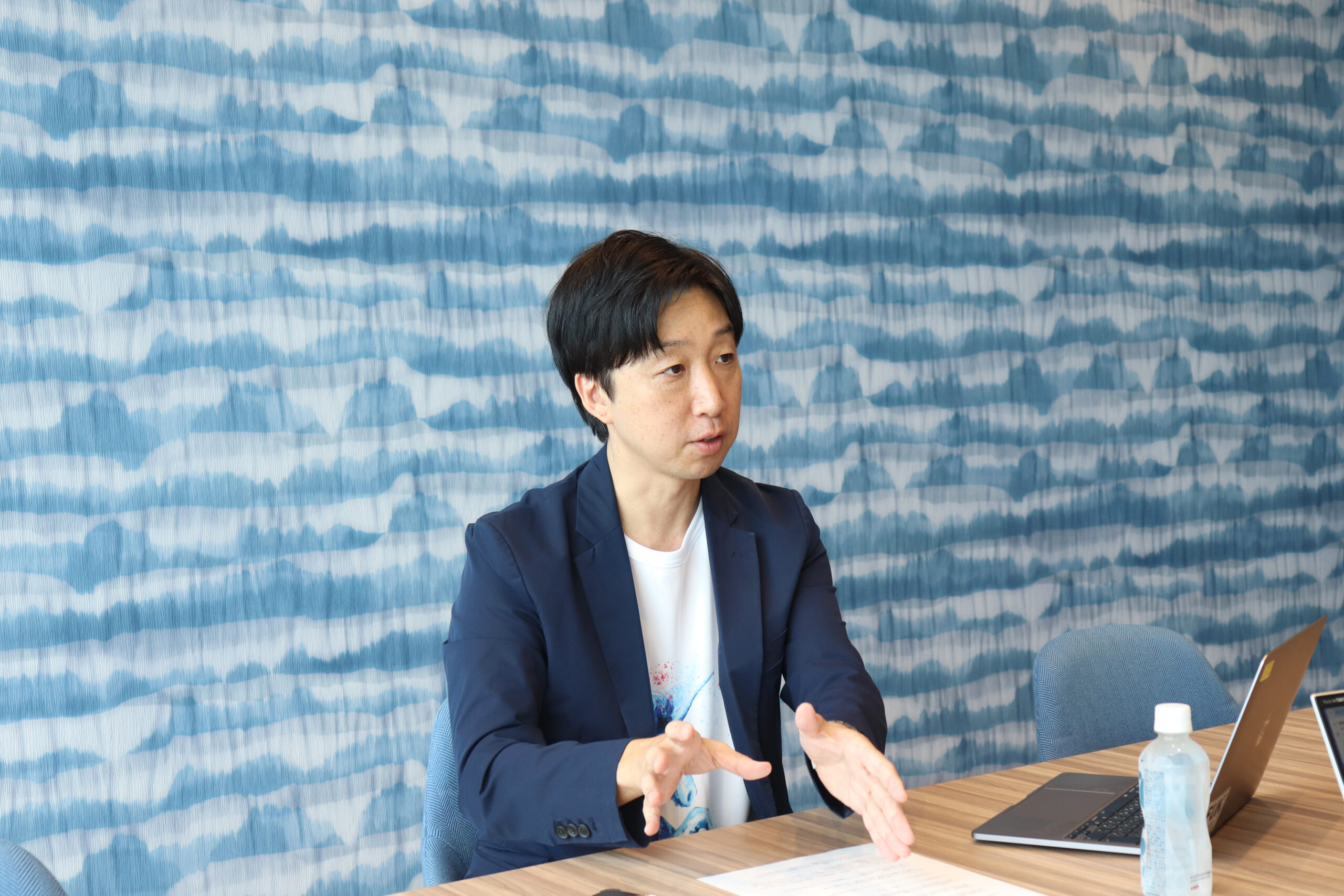
Sugihara:
Was your experience at D-POPS useful in managing your own company?
Hosaka:
It was, and still is. Back then, stores operated on an independent profit system. They managed their own sales and gross profits, and independently funded campaigns using the store’s personnel budget. In a sense, it was effectively like running their own small-scale businesses.
So, depending on the store manager, a store could either become very profitable or fall into the red. We weren’t focused solely on sales numbers or the volume of contracts—each store was essentially running its own business. This experience of running a mini business at the store level has been extremely valuable for my current management role.
Sugihara:
Being able to learn management at the store level must have been very educational. By the way, at that point, how many companies were in the group besides D-POPS?
Hosaka:
At that time, there were only Good Crew and Advancer.
Sugihara:
I see. So then, you were starting the group’s third HR-related company?
Hosaka:
Actually, Advancer wasn’t an HR company at the time…it was a secondhand shop for smartphones. They later pivoted to become the HR company they are today.
Sugihara:
Oh, I didn’t know that! Well, what were the differences between Good Crew and STAR CAREER back then?
Hosaka:
There were two main differences. First of all, STAR CAREER wasn’t just focused on mobile businesses—in anticipation of the Tokyo 2020 Olympics, we launched with the concept of providing specialized staffing for customer service and store operations in brick-and-mortar businesses like hotels and restaurants.
Second, at that time, Good Crew was struggling with recruitment, hiring only 30-40 people annually. We accepted the mission that President Goto proposed: “Hosaka, let’s aim to hire 100 people.” As a result, STAR CAREER ended up hiring 107 new graduates that April.
Interestingly, the following year, Good Crew managed to hire 100 people as well. I think this was part of President Goto’s strategy to foster growth through competition.
Starting recruitment activities right after founding the company and hiring 107 new graduates was challenging enough, but then around November, President Goto said, “There’s a company joining through M&A next April. I was thinking you could manage that one, too.”
Since we had just started this brand new company with only two people including myself, I was asking myself, “Really??”, while in the same breath, I answered, “I’ll do it!” And so, with that, I also became the manager of graphD.
Sugihara:
That sure escalated quickly! You seem to be the type who can handle—or at least be willing to handle—any obstacle that comes your way.
Hosaka:
I love getting thrown curveballs! I want people to think of me as “that handy guy”.
Sugihara:
That’s really important, isn’t it? From the perspective of top management, having “handy people” among executives is absolutely essential, and those individuals end up getting more and more work thrown their way. The more work they’re given, the more they develop and gain experience. It’s a beneficial situation for executives, but something similar can be seen in group company management as well. Even as a CEO running one organization, to be seen as a “handy guy” by the group’s president must be important, or rather, desirable.
Hosaka:
Yes, I was quite happy about that! But then, I was also thinking “Seriously?!” about establishing a new company in April when 107 new graduates were also joining at that same time, ha ha.
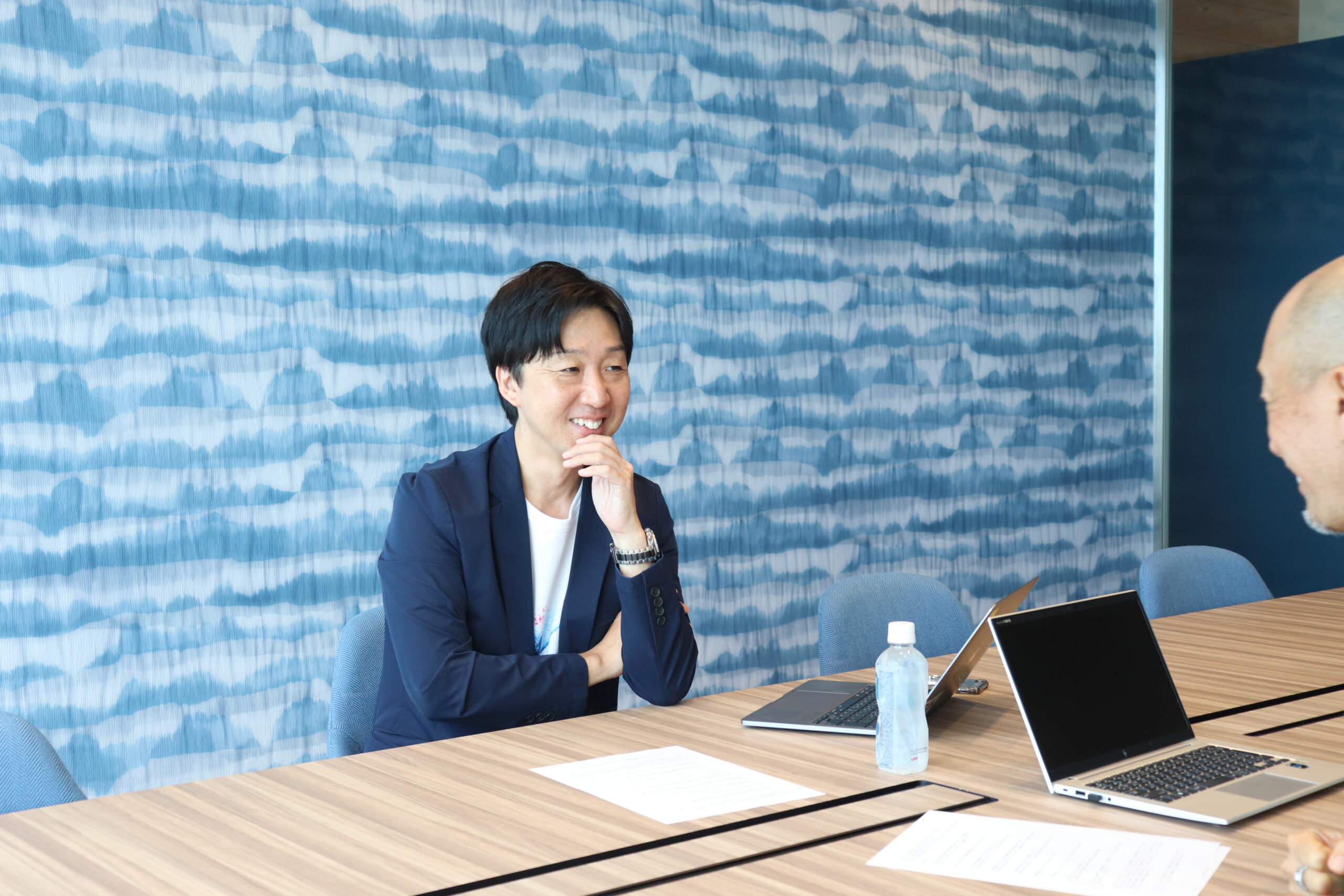
◆STAR CAREER’s Business
Sugihara:
Could you briefly introduce us to STAR CAREER’s business model?
Hosaka:
As of 2024, we’re a comprehensive HR services company that operates job hunting cafes which we call Career Work Cafe. With these job hunting cafes at our center, we run three main businesses: temporary staffing, job placement, and recruitment outsourcing.
Sugihara:
I see. So those job hunting cafes are the core of your business.
Hosaka:
That’s right. When companies recruit, they typically either post on platforms like MyNavi and wait for applications, or work with recruitment agencies to find candidates. From a job-seeking student’s perspective, our job hunting cafes serve as a platform that’s neither a job board nor a recruitment agency…it’s a unique place they can reach out to.
Sugihara:
How do job-seeking students learn about your job hunting cafes?
Hosaka:
Basically, we have partnership agreements with student organizations. For example, we work with student groups supporting refugees in Laos and Cambodia, or those who help at dog and cat rescue centers. We open our job hunting cafes as meeting spaces for them and provide them with a place for their activities. We also regularly sponsor their activities with contributions of around 50,000 or 100,000 yen each.
In exchange, students registered with these organizations come to our job hunting cafes when we hold events or information sessions.
Sugihara:
So, since your core business is supporting job-seeking students with these job hunting cafes, you mainly handle recruitment and placement of students. I imagine many of your own hires are students and young people…how do you handle their education and training?
Hosaka:
First of all, we do training for those who’ve received tentative job offers and for new hires. Then, we do group training sessions every month for a full year after that.
While many other group companies and external staffing agencies do similar things, our temporary staff work one day less at their placement sites compared to other companies. In a sense, we’re using that day for training, so they spend less time at their placement sites.
What we consistently tell our members, from the time we tentatively offer the job until they are hired, is that “When it comes to work, in order to do what you want to do, focus on increasing your skills, and you’ll eventually be able to do what you want.”
Now, when it comes to level and skills, most people seek to acquire skills, such as earning certifications or studying abroad. Skills are indeed powerful assets, of course, but it’s like in Dragon Quest: even if a character has a level 50 weapon (skill), it can’t be used effectively if the character itself is only level 1. In the same way, without raising your own level, you can’t utilize those skills. So rather than just improving skills to increase a member’s market value, we focus on raising the member’s level for the first year.
We encourage our members to go from level 10 to 20 to 30, while also honing their skills at the same time. Instead of just telling people to work in stores, we offer monthly training sessions to teach them how to face challenges they might encounter in those stores, how to approach problems mentally, how to seek cooperation from others, and how improving your level enables you to handle work better.
Sugihara:
That’s wonderful. What you gain from leveling up is much more valuable than focusing on skills like certifications first. Not that certifications are useless, but in terms of English, for example, it’s better to become a business person who masters English through practical use and work experience, and then maybe takes a test and sees an improved score, rather than someone who can’t communicate in English but has a TOEIC score of 990. The former builds confidence and is definitely more valuable.
◆Challenges During the COVID-19 Pandemic
Sugihara:
Now for the next question. You’ve been managing this HR company for 8 years…how is your business doing recently? How was the company’s situation during the COVID-19 pandemic three years ago?
Hosaka:
During the pandemic, we suffered damage severe enough to shake our company’s direction. We had originally planned to focus on store businesses, providing staffing for hotels and restaurants, but then the Olympics were cancelled...
Originally, each color of the stars in STAR CAREER’s logo had a specific meaning. We started with the concept of specialized staffing for customer service in five areas: hotels, bridal, apparel, restaurants, and mobile phone shops. But when COVID made these business prospects uncertain, we had to remove all mention of them from our website and other materials. At the same time, we launched job hunting cafes as our business.
The long COVID era brought major changes to people’s lifestyles and perspectives, especially for the job-hunting students with whom we frequently interact. They started their freshman year right when COVID-19 began to interrupt life in Japan, and were seniors when the Japanese government reclassified COVID-19 from a Category 2 pandemic to a Category 5 (lower-risk) endemic disease. So, it makes perfect sense that they struggle to answer interview questions such as “What did you accomplish during your college years?”.
The job hunting cafe business, which started alongside COVID, transformed into something that aimed to expand people’s career options and make their life choices more colorful. However, when we first launched the cafes, we did lose some employees who had joined expecting to work in hotels and restaurants, saying “This isn’t what I was first told! I joined because of what was promised initially, but now we’re not doing that anymore.”
While maintaining our core principle of “connecting people with people”, we expanded into remote call centers and work-from-home customer support, areas that grew significantly during COVID. As the pandemic subsided, we also moved into in-office administrative work. Now, beyond providing environments for our members’ growth, we’ve strengthened our focus on offering various working styles to suit different life plans.
What COVID helped us realize was that whether it’s B2C or B2B, it’s ultimately about human connections. For example, when customers come to a store, they do so because they think, “Maybe this person can do something for me.” In B2B as well, since there are people involved, “This is a tight deadline…but maybe if I ask So-and-so, they’ll do their best to help.” In the end, work is all about people connecting with people.
Members who joined as new graduates saying “I’ll work super hard!” have now returned from maternity and childcare leave. Some continue to work just as hard, while others want a better work-life balance, and some want to work but can only do so under certain conditions. And I believe all of these choices are valid. Whether some members want to increase their income, enrich their private lives, or prioritize their family—when these various needs arise, we want to create options within the company to accommodate them, making it a place where people can work with peace of mind for a long time. I think the idea of making one’s life more colorful is the new meaning and intent behind our logo’s design.
As for business performance, our top line did temporarily decrease due to the changes in our business model resulting from the pandemic, but since then, our operating profit has actually increased!
Sugihara:
That’s wonderful. You went through a difficult period but came out stronger for it, and now you’re gradually shifting to a more robust business model.
Hosaka:
Yes. Now we dispatch more people to call centers and back offices than to mobile phone shops, so I guess you could say our group’s risk portfolio has expanded.
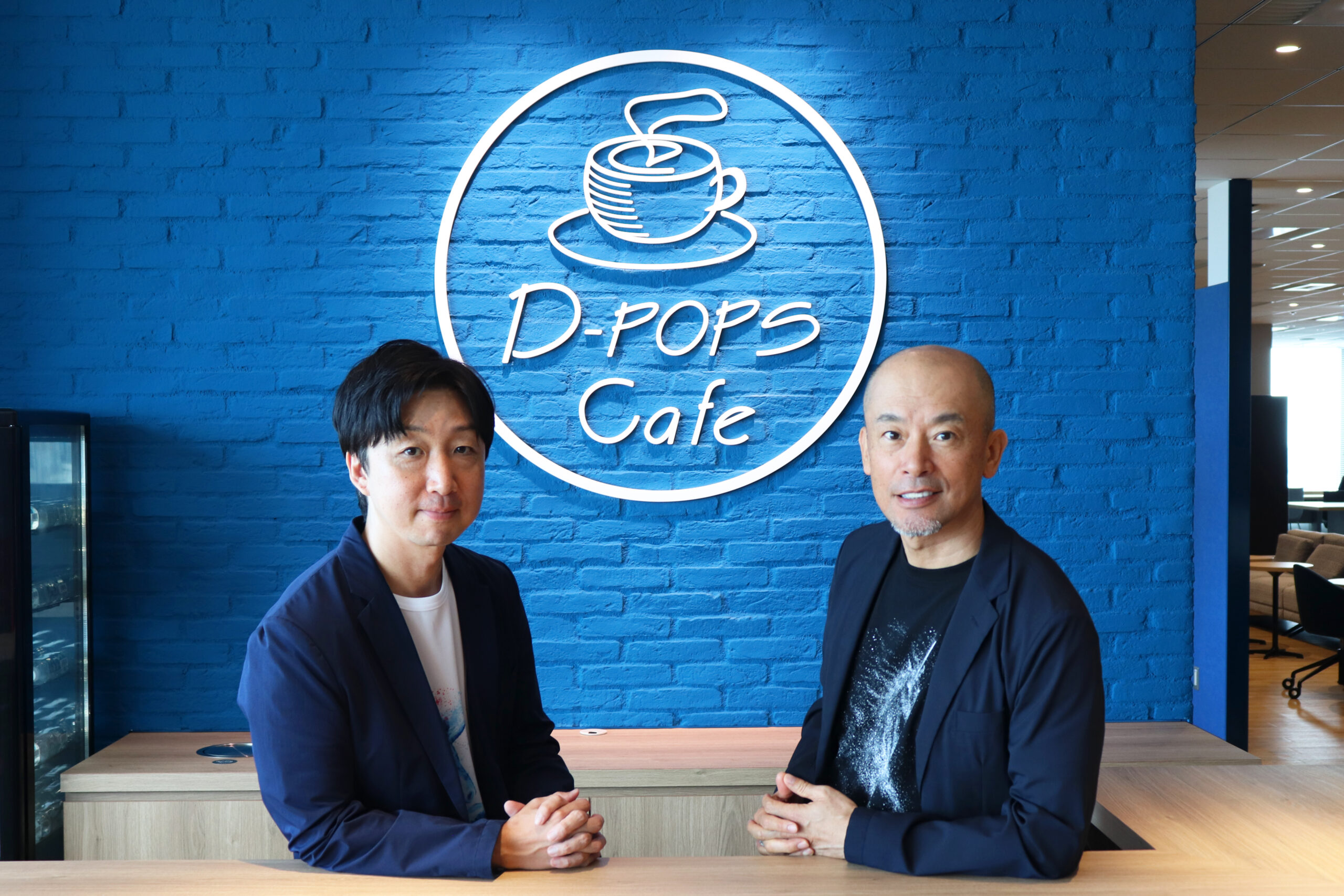
STAR CAREER CO., LTD
Company President and CEO: Tatsumasa Hosaka
Address: 25F Shibuya Cross Tower, 2-15-1 Shibuya, Shibuya-ku, Tokyo
Established: May 2016
Website: https://star-career.co.jp/
Next, in the latter part of the interview, we discuss:
• The market environment
• The release of “Caripo”
• Industry-academia collaborative events
• STAR CAREER’s corporate culture
• “Realizing a Venture Ecosystem”
• And other topics
Be sure to check it out here!




